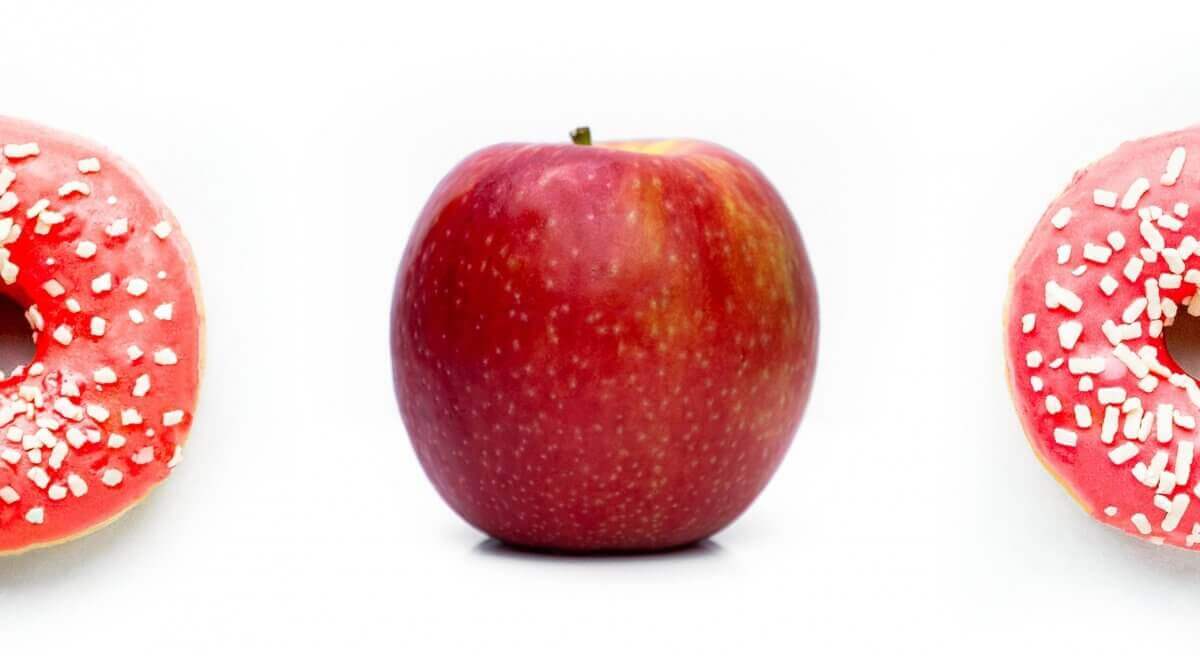The Effect of Coffee on Brain Health
Pour-over, solo, drip, French-pressed – however you enjoy your coffee, it may be doing more for you than just getting you going in the morning. Drinking coffee may also protect you from a variety of health conditions, so long as it is consumed in moderation.
For decades, coffee had a poor reputation because of early studies that deemed it a carcinogen and linked it to an increased risk for heart disease. Recent research now suggests that drinking coffee, including decaffeinated coffee, may actually provide a variety of health benefits when consumed in moderation.
The Benefits of Coffee on Brain Health
Some of coffee’s health benefits are commonly known, including that it boosts metabolism and increases energy levels. Lesser known, but perhaps more important benefits of coffee are that it also:
- Enhances brain function
- Lowers the risk of developing dementia and Alzheimer’s disease
- Decreases the risk of stroke and depression.
Beyond brain health, moderate consumption of coffee also helps reduce the risk of some cancers, type 2 diabetes, and heart disease.
Coffee’s Key Ingredients
Caffeine is just one of about 1,000 chemicals found in coffee beans, but is the best known. A stimulant, caffeine delivers a boost of energy and helps provide focus. It locks into the adenosine receptors in the brain, which cause drowsiness, and counteracts the sleepiness response by blocking the function of the receptors. Instead of feeling drowsy, caffeine stimulates the brain’s production of norepinephrine and dopamine, which is what leads to increased focus and alertness.
In addition to caffeine, coffee also contains beneficial polyphenols and antioxidants, which fight inflammation and protect against some diseases.
Polyphenols are organic compounds found in the coffee plant. They contain anti-inflammatory properties that have the potential to prevent or reduce the risk of certain cancers and other chronic health conditions. Some polyphenols may also protect against neurodegenerative diseases, including Alzheimer’s, Parkinson’s, and Huntington’s. Consuming polyphenols also may help regulate metabolism, weight, and cell production.
Other beneficial components in coffee include vitamin B2 (riboflavin); vitamin B5 (pantothenic acid); vitamin B1 (thiamine); vitamin B3 (niacin); folate, manganese, potassium, magnesium; and phosphorus.
Coffee beans also are enriched so that when they are ground, blended, and consumed, provide some pre- and probiotic properties for good gut health.

The Cons of Drinking Coffee
While coffee has many health benefits, it can also have some negative effects. For example, it can:
- Disrupt sleep
- Cause anxiety and jitteriness
- Lead to an addiction to caffeine
- Cause withdrawal symptoms (headache, fatigue, brain fog, and irritability) when abstaining
- Increase feelings of anxiety and agitation in those with anxiety disorders
Moderating consumption is key to enjoying its benefits.
How Much Coffee Should You Drink?
As with most foods, coffee is a healthy beverage when consumed in moderation. The Dietary Guidelines for Americans recommends no more than five cups a day or on average 400 mg of caffeine. Another reason for moderate consumption is because too much, especially after mid-day, could interfere with getting a good night’s sleep and may create feelings of anxiety.
Optimizing the Benefits of Coffee
While coffee has many health benefits, adding refined sugar, artificial sweeteners, and/or creamers add calories and create an unhealthy beverage.
“The extra calories, sugar, and saturated fat in a coffee house beverage loaded with whipped cream and flavored syrup might offset any health benefits found in a basic black coffee.” – Harvard School of Public Health

How you brew your coffee also affects the health benefits it imparts.
For example, using a paper filter or checking coffee pods for built-in filters helps prevent the passage of unhealthy chemicals present in coffee as it filters. Some of these chemicals can raise levels of LDL, or the “bad” cholesterol.
The Bottom Line
Coffee has many health benefits, when drunk in moderation. Using high quality beans, brewing it with a paper filter, and limiting additions such as refined sugars and creamers, can optimize the impact of coffee on your brain health.
Aviv Clinics Dubai – brought to you by DP World delivers a highly effective, science-based treatment protocol to enhance overall brain performance, extend healthspan, and improve the cognitive and physical symptoms of conditions such as mild cognitive decline, fibromyalgia, and Lyme disease. The Aviv Medical Program’s intensive treatment protocol uses hyperbaric oxygen therapy and includes nutrition management and dietitian support to optimize your diet for better brain health. Based on over a decade of research and development, the Aviv Medical Program is comprehensive and customized to your needs.
Contact us to learn more.
How Does Sugar Affect the Brain?
From the Paleo diet to the Mediterranean diet to the ketogenic diet and beyond, there’s one thing that nearly all modern diets agree on—if you want to maintain a healthy body and mind, cut out sugar.
While there’s wisdom in this advice, blanket statements like “cut out sugar” can leave room for confusion. It leaves many people wondering, is all sugar bad for you? Should you avoid sugar in any form, including in fruits? What about carbohydrates found in vegetables like potatoes? With so many complicated questions like these and no clear answers, it’s no wonder many people feel confused. As a center dedicated to improving brain health and performance, Aviv Clinics understands the importance of proper nutrition and its direct effect on cognitive and physical functioning.
Let’s examine sugar in detail and clarify what dietitians really mean when they tell you to cut out sugar.
Is Sugar Really the Enemy?
Not exactly—foods with high amounts of sugar can still be healthy! For example:
- Apples contain lots of sugar but water, vitamins, nutrients, and dietary fibers that are vital for a healthy body. Dietary fiber is essential for maintaining a thriving wealth of gut flora. Gut flora builds our immune system and fights off ailments like leaky gut disease.
- You can find natural sugars in many whole foods. They also come in many different chemical forms, including glucose from carbohydrates. Glucose provides our bodies with energy, helping fuel our muscles and vital organs as it circulates throughout the bloodstream. We wouldn’t be able to function normally without the glucose from carbohydrates.
Does Your Brain Need Sugar?
Although the brain can use alternative fuel sources for fuel if you’re insulin resistant, such as ketones, glucose is the brain’s preferred fuel source. The brain relies heavily on glucose when performing complex tasks requiring much thought.
So when you’re concentrating extra hard on a crossword puzzle or a complicated passage in your favorite book, your brain is burning glucose over time to help you get the job done. If your blood sugar dips too low, you can experience problems like brain fog or trouble concentrating. It’s your brain’s way of telling you that it needs more fuel and that you should grab a healthy snack.

What Is the Difference between Natural Sugar and Refined Sugar?
While natural sugar naturally occurs in foods, refined sugar is processed to extract the sugar.
Natural Sugar Process
When you eat an apple, your body does all the work of processing the unrefined fruit into digestible nutrients all on its own.
First, you must chew the apple, breaking it down into apple sauce. Then, your gut does the hard work of absorbing the vital nutrients and breaking down the sugar to send circulating throughout your bloodstream.
The leftover fiber is used to nourish your gut’s network of microflora. When you eat whole foods, your body is the factory, and the natural sugars in your foods are the fuel that runs it.
Refined Sugar Process
Foods with refined sugar are a different story. Candies, cookies, chips, and other pre-packaged snacks don’t offer your body the same fuel as whole foods. Your body doesn’t have to go through the work of breaking down these highly processed foods—the factory already did it for you.
Processed foods are loaded with refined sugar without any of the nutrients, vitamins, and fibers your body needs. This leaves your gut flora starved of the materials required to function and your immune system vulnerable.
Is Sugar Bad for Your Brain?
It’s possible to have too much of a good thing. Modern western diets are filled with refined sugar and carbohydrates in the form of ready-made snacks, treats, and processed foods.
Thus, you may feel sluggish once the “sugar high” wears off. Eating too much sugar can also make you susceptible to health conditions like type 2 diabetes.
The best way to limit refined sugar intake is to lean on a natural diet consisting of whole foods.
What Does Sugar Do to Your Brain?
Excessive sugar intake can impact specific neurotransmitters and bring on memory deficiencies. Among these neurotransmitters is dopamine—the chemical controlling mood, behavior, learning, and memory.
Here’s what research studies further illustrate:
- When rats were fed a high-sugar diet that resembles the average western diet, their cognitive performance suffered. The rats struggled to complete tasks that relied on their memory. Their struggles suggest their diets were directly responsible for impairing their brain’s prefrontal lobe and hippocampus regions.
- Eating a diet high in sugar can reduce the production of a chemical called “brain-derived neurotrophic factor” (BDNF). This chemical is active in areas of the brain vital to learning, memory, and higher thinking. Low BDNF levels are associated with poor memory function and are linked with Alzheimer’s Disease and dementia.
- Experiments in animals and people have revealed that when the brain needs an extra power boost, blood vessels in the brain dilate to deliver more glucose and oxygen through the bloodstream.
Is Sugar Important to the Body?
Yes, natural sugars in the foods you eat perform a vital role in energizing the body and mind. The body requires a total of 200 grams of sugar or glucose each day. Two-thirds of this, or 130 grams, is used by the brain to help you function to your best ability.
The key takeaway from the information we presented above is this—incorporating a diet filled with natural, whole foods is essential to:
- Nourishing your body with the right type of sugar
- Enhancing cognitive and physical performance
4 Tips for Healthy Eating
The natural sugars found in whole foods are nothing to fear. Eating a diet with enough carbohydrates and natural sugars is vital for keeping your body and brain healthy.
Here are a few ways to stay on track:
- Make sure the bulk of the sugar you consume comes from whole foods like fruits and vegetables, not processed junk foods.
- Just because a food is labeled “sugar-free,” that’s not always the case. It may be true that a food doesn’t contain added sugar, but remember that carbohydrates turn to glucose in your body.
- You can rack up carbohydrates quickly on a typical day. Try to aim for around 45 total carbs at every meal if you’re a woman or 60 every meal if you’re a man. You’ll be surprised how quickly you can meet that quota with just a handful of whole foods!
- You don’t have to cut out refined sugar altogether. Obsessing over eating a “perfect” diet only stresses you out and doesn’t leave any room for you to feed your soul. Do you plan on spending a relaxing afternoon baking with your grandkids? Go ahead and treat yourself to a warm cookie fresh from the oven.
If you’re eating healthy at most meals, there’s no need to feel guilty about indulging in rich foods now and then. Just be smart about it, and always make conscious decisions about what kind of foods you put into your body.
Aviv Clinics delivers a highly effective, science-based treatment protocol to enhance brain performance and improve the cognitive and physical symptoms of conditions such as traumatic brain injuries, fibromyalgia, Lyme, and dementia. The Aviv Medical Program’s intensive treatment protocol uses Hyperbaric Oxygen Therapy and includes nutrition management and dietitian support to optimize your diet for better brain health. Based on over a decade of research and development, the Aviv Medical Program is holistic and customized to your needs.
Contact us to learn more.